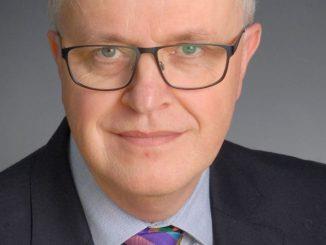
Logistics UK chief executive David Wells (pictured) has urged the government to extend the number and duration of temporary visas available to EU drivers and rejected the Prime Minister's claims that the move would represent "uncontrolled immigration".
Responding to Boris Johnson’s suggestion this week that the haulage and logistics industry is to blame for the current supply chain issues, Wells said: “To suggest that it is the fault of the very industry which has kept the country supplied with everything it needs throughout the pandemic is, quite frankly wrong.
“The government is well aware that that there are two recent shocks to the system which have created the current problems: 19,000 HGV drivers leaving the UK because of Covid and Brexit and the DVSA’s decision to stop the testing of 45,000 new HGV drivers during the pandemic. Rather than trying to shift the blame for the current situation onto industry, we need government to redouble its efforts to provide assistance in those areas it can control."
Read more
- Hauliers hit back after Prime Minister blames industry for petrol pump crisis
- Prime Minister blames hauliers for driver shortages and petrol pump crisis
- Prime Minister blames hauliers for driver shortages and petrol pump crisis
Wells added that the "first positive step" to easing the situation would be to extend the number and duration of temporary visas recently made available to EU drivers, to enable them to ease the current pressures on the supply chain and provide enough time for the backlog of driving tests to be worked through so that UK residents can qualify as drivers.
"This is not uncontrolled immigration," he insisted. "It is a pragmatic solution to the current economic needs."
Wells also criticised the government's failure to improve welfare facilities for drivers which he said had added to the current labour shortage crisis.
"In an effort to improve the image and accessibility of the industry, and improve recruitment levels, government must deliver on the promises it has made repeatedly over the past four years to deliver more safe and secure overnight parking spaces for HGVs across the roads network," he said.
"Without changes to planning rules, little or no progress can be made on the creation of the 1,400 parking spaces the government acknowledges our industry currently needs.”














